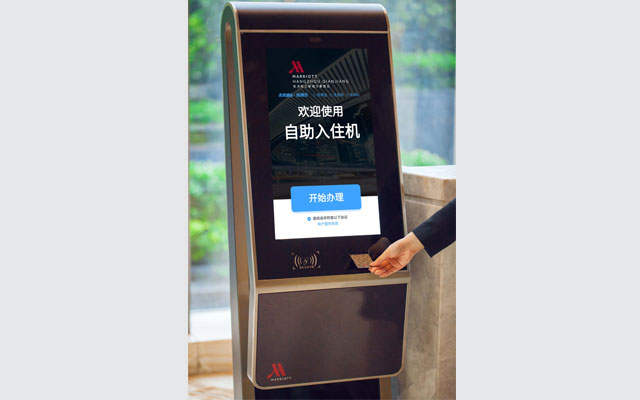Robot bellboys, facial recognition technology and fully automated check-ins are becoming a norm among hotels in China
The recent launch of Alibaba’s first automated Flyzoo Hotel in Hangzhou is a clear reflection of the fast state of technology development and strong consumer demand for smart hotels in China, as hospitality players scale up their efforts in smart technologies to provide better customer experiences and meet the expectations of tech-savvy travellers.
In fact, the Chinese hospitality sector abounds with examples of collaboration with the technology world.
The Shangri-La Group has partnered Tencent Holdings to develop smart hotels, leveraging the Chinese tech giant’s cloud and artificial intelligence solutions.

As well, Alibaba Group and Marriott International have entered into a joint venture to trial facial recognition check-in technology at two Marriott hotels in China, Hangzhou Marriott Hotel QianJiang and Sanya Marriott Hotel Dadonghai Bay.
Peggy Fang Roe, chief sales and marketing officer for Asia-Pacific, Marriott International, commented: “For the China market, market research results by consulting firm Ipsos indicated that Chinese travellers have shown a strong interest in new technology in hotels, with over 60 per cent showing preference for facial recognition technology.”
The Alibaba-Marriott joint venture has also enabled wallet-free travel through the deployment of Post Post Pay functionality across over 1,000 Marriott International hotels globally by end-2018, allowing qualified users to travel first and pay after their stay, Fang shared.
Another example is the cross-industry initiative by online entertainment iQIYI to install virtual reality (VR) experience rooms in selected hotels across China. It has already signed agreements with five hotel brands across China and talks for potential cooperation with a further six hotel brands are underway. The number of iQIYI VR Experience hotel rooms is estimated to reach 100,000 by the end of 2019.
Hongkong-based Regal Hotels International, which has 12 hotels in China, is taking a more measured approach to smart technology implementation at its properties.
The group has, however, launched the Riva chatbot in Greater China as a virtual employee to assist customers with room reservations and guest enquiries round the clock, vice president for China, Joseph Yung told TTG Asia.
“We never underestimate the customer acceptability of the smart hotel, but at this stage, people base usage on their curiosity rather than their personal preference, so we prefer to take a gradual approach (to rolling out hospitality technology),” said Yung, adding that the group might consider the implementation of facial recognition technology in the near future.
“After we have implemented the smart solution projects in Regal & iClub Hotel Hong Kong, we will review the effectiveness and apply it to the appropriate China hotels based on the demand, locations, customers profile, etc. As you know, the market segmentation in China will be quite different, so it will require different facilities and services.”
Confident that the Chinese market will continue to show a healthy desire for smart hotel technology, W Shanghai, director of sales and marketing Jordi Pedro, noted: “New smart solutions will bring both hotel and customer new experiences and opportunities that target better service, but also present new challenges to both sides.
“From a hotel point of view, the additional control a hotel gives to customers to book and access any facilities inside the hotel will require new measures and new technology in order to guarantee the legitimacy, safety of the customer and compliance of policies that in China has direct links to public security,” said Pedro.




















